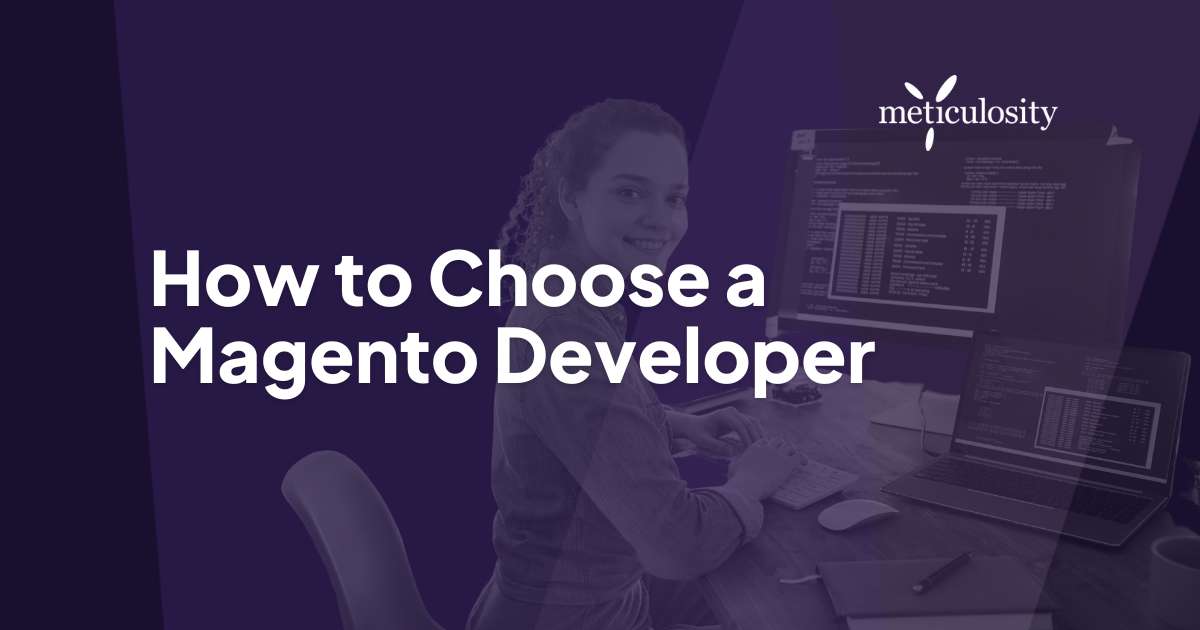Sourcing your next Magento developer can make or break your budget and timeline. How do you make sure you're hiring the right one for the job? Magento developers have become a dime a dozen. Searching on Google for "Magento developer" will yield pages and pages of them. Head over to LinkedIn, and there are a gazillion groups. You probably get half a dozen emails from offshore people trying to sell you "the best ecommerce services." How do you get through all the static and pick the right one?
1. Have you checked references?
Make sure you get references and actually call them. If the company you are talking to isn't willing to give you references or they come up with a story about it being confidential or something, then they are pulling a fast one on you. Nobody who does good work will have clients who won't give good references.
Make sure you call more than one reference and ask very specific questions. Ask if they delivered on time. Ask if they delivered on a budget or if they tried to charge extra for the final product. Are they responsive? If they're offshore, are you able to get ahold of them during the day in your time zone?
2. Do they ask you the right questions?
If someone is giving you a quote on how much a website will cost but they haven't asked you about your fulfillment process, how can they know what it will cost? A good developer will ask you more than "How many products do you have?" - they will ask you about your business goals, back-office workflows, fulfillment process, and more. If they don't ask the right questions, you're going to get stuck midstream with a broken website and extra charges to "fix" assumptions that both parties made.
3. Where are they located?
Offshore Magento developers often have a bad rap, but that doesn't mean you have to avoid them like the plague. US and Canada-based developers can cost 5-10x more per hour, so going offshore will get you a good value if you can find the right developer.
You need to make sure that you can contact them during the day in your timezone if there are problems and make sure they actually staff a developer or two during your daytime hours. Otherwise, when something goes wrong (and it will), you won't be able to get someone working on it immediately.
Another common issue with offshore teams is the language and communication barrier. Ensure your PM or account manager is fluent in English, as they will be the primary conduit for creating requirements and getting things done later. If you can communicate your needs to them, they should be able to translate it to the actual developers.
Finally, ensure the project requirements or specifications are explicit to the pixel. This is good practice no matter who you work with, but the kind of assumptions you make as a US business owner are not going to be obvious to a developer on the other side of the world.
4. Do they have a clear and fair pricing model?
Another common friction point is cost. We often hear stories about projects that get halfway done, and then the developer asks for more money to finish it - practically holding the client hostage. Fixed-price projects are often the best. You might save a few bucks once in a while from hourly-based projects, but most of the time, you'll win with a fixed price.
Make sure the proposal is crystal clear about 3rd party charges. Are you paying for extensions, or are they? What about stock photos? Who is actually going to own all of this when it's done?
What happens if the project scope does run outside expectations? Who's fault is that, and who will pay for it? If they're experienced developers, they'll be able to scope your project closely enough that this won't be an issue. Be sure you understand how this will be dealt with if the project takes a wrong turn.
5. What's in their portfolio?
Magento is an extremely complex shopping cart - so first and foremost, make sure they have lots of experience in Magento. Shopify or 3dcart are nothing like Magento, so just because they have ecommerce experience doesn't mean they can handle Magento.
You're not always going to find a vendor with specialization in your particular industry, so make sure they have some websites in their portfolio that share some similarities. If they've worked with a trophy dealer, they can probably handle the customization requirements of a screen-printing retailer.
It's also nice to see if they've written their own Magento extensions. Since extensions are at the core of customizing Magento, having some skill in this area will mean they likely know what they're doing and may even have some components of what you need for your website on the shelf and ready to go.







